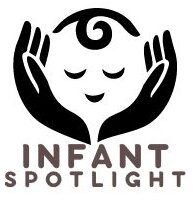Congratulations on your bundle of joy! As a parent, one of the exciting milestones you may be eagerly anticipating is when your baby starts to understand simple words. Understanding when your little one will reach this developmental milestone can help you foster their language skills and enhance their communication abilities. In this article, we will explore the typical timeline for babies to grasp the meaning behind simple words, providing you with valuable insights into your baby’s language development journey. So, let’s embark on this delightful adventure together!
Developmental Stages
Language development is an essential milestone in a child’s growth and overall development. It plays a crucial role in their ability to communicate, understand the world around them, and build meaningful relationships. As a parent, it is natural to wonder when your baby will begin to understand simple words and how you can support their language development. In this article, we will explore the different stages of language development and provide tips on how to encourage and facilitate your baby’s language acquisition journey.
Importance of Language Development
Language development is not just about your baby forming words and sentences; it encompasses their ability to comprehend and express themselves effectively. A strong foundation in language development sets the stage for future cognitive, social, and emotional growth. When babies develop language skills, they can communicate their needs, desires, and emotions, leading to improved self-esteem and reduced frustration. Additionally, language development facilitates the learning of other skills, such as reading, writing, and problem-solving.
Receptive Language Skills
Receptive language skills refer to your baby’s ability to understand and comprehend spoken language. While infants may not be able to respond or speak themselves, their receptive language skills start developing from birth. During the newborn stage, babies have limited understanding and respond to familiar voices. As they grow, their receptive language skills continue to progress, allowing them to track sounds and voices around 2-4 months of age.
By the age of 4-6 months, babies begin to understand the tone and inflection of speech, enabling them to recognize emotions in spoken language. They also show responsiveness by turning their heads or making eye contact when their name is called. As they reach 6-9 months, babies can understand basic words and instructions and even start pointing and gesturing to communicate their desires.
Expressive Language Skills
Expressive language skills involve your baby’s ability to communicate their thoughts, ideas, and needs through spoken or gestural means. While babies cannot form words in their early stages, they display various forms of communication. Between 2-4 months, babies start cooing and babbling, making sounds like “goo” and “gah.” This babbling is an essential step towards developing expressive language skills, as babies explore and experiment with the sounds they can make.
Around 9-12 months, babies typically say their first words, such as “mama” or “dada,” and begin imitating sounds they hear. By 12-18 months, their vocabulary expands rapidly, and they can comprehend and follow simple instructions. As they approach the 18-24 month mark, babies start forming two-word phrases and even asking simple questions. By the age of 2-3 years, they begin to form longer sentences and understand more complex concepts.
Encouraging Language Development
As a parent, there are several ways you can support and encourage your baby’s language development. Here are some tips to consider:
Talking to Your Baby
One of the most effective ways to promote language development is to engage in frequent conversations with your baby. Talk to them while changing their diaper, feeding them, or during playtime. Describe their surroundings, name objects, and label actions as you go about your daily routine. This exposure to language will help them grasp new words and sentence structures.
Reading Books
Reading to your baby from an early age is an excellent way to stimulate their language development. Choose age-appropriate books with colorful pictures and simple sentences. Point to the pictures as you read, use different voices for characters, and encourage your baby to touch the pages. This interactive experience not only enhances their vocabulary but also establishes a love for reading.
Sing and Play Nursery Rhymes
Music and rhyme are powerful tools for language development. Singing nursery rhymes and playing interactive songs can help your baby understand and reproduce different sounds and rhythms. Choose rhymes and songs that involve gestures or small actions, allowing your baby to participate and engage with the language.
In conclusion, language development is a critical aspect of your baby’s growth and development. By understanding the different stages of language acquisition and implementing various strategies to encourage language development, you can support your baby’s language skills effectively. Remember to engage in conversations, read regularly, and incorporate music and rhymes into your daily routines. With your loving guidance and support, your baby will embark on a journey of language acquisition that will shape their future communication abilities and overall cognitive development.
